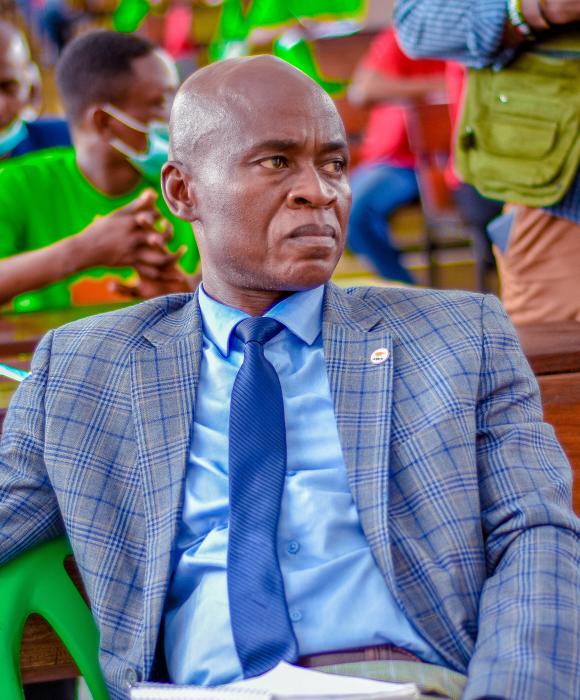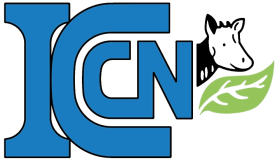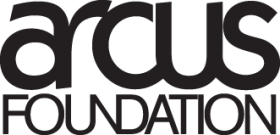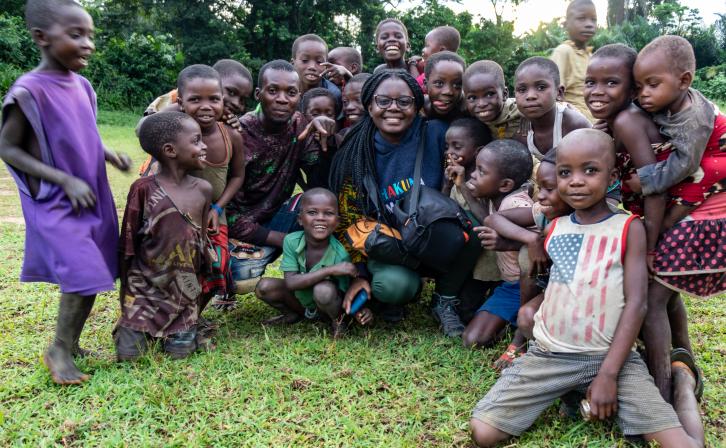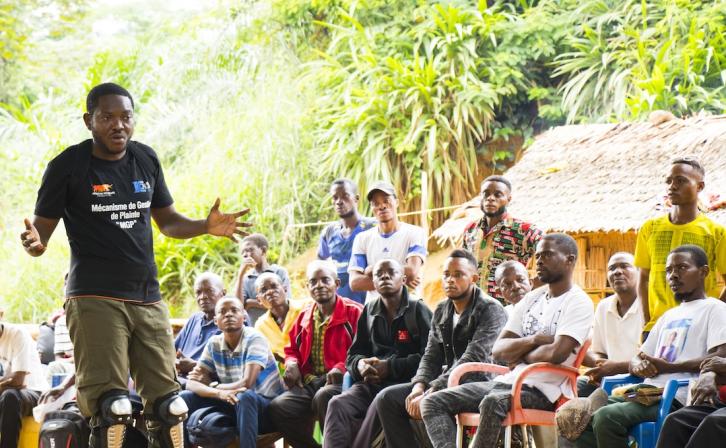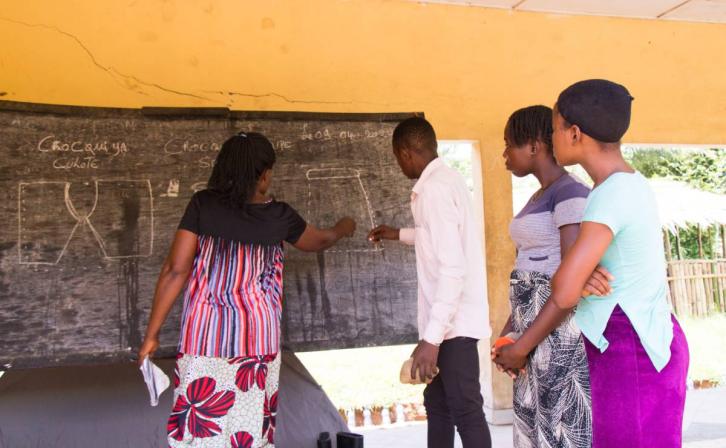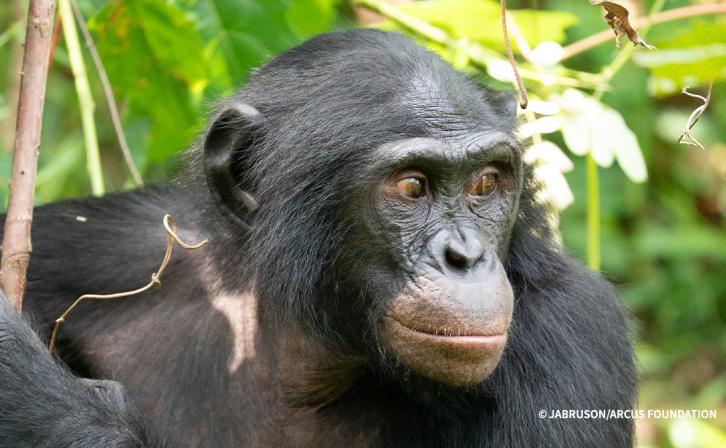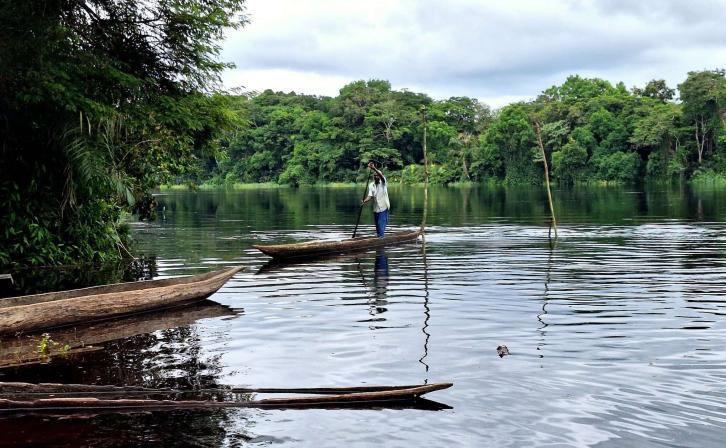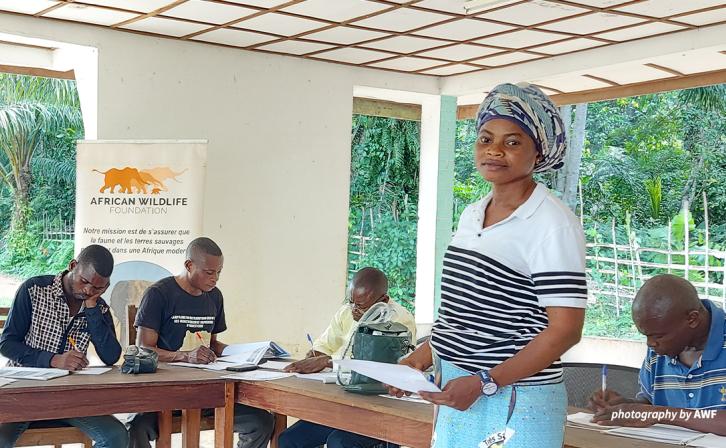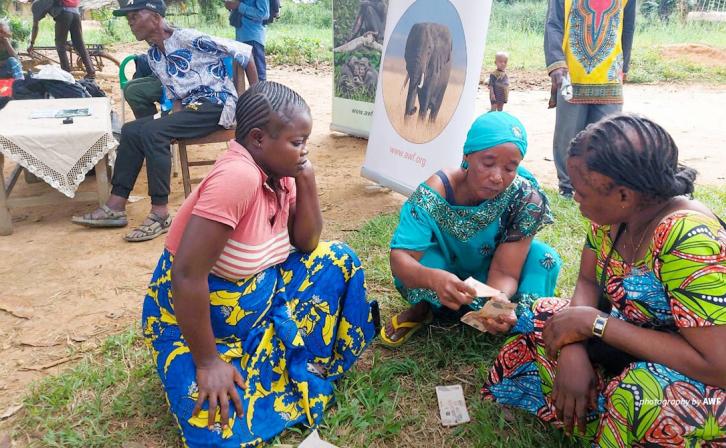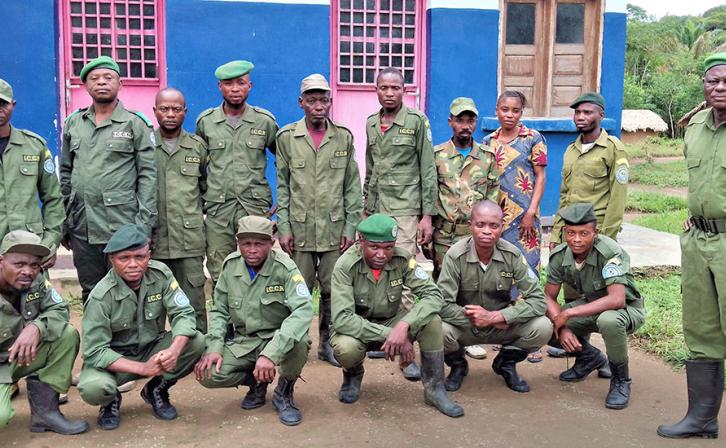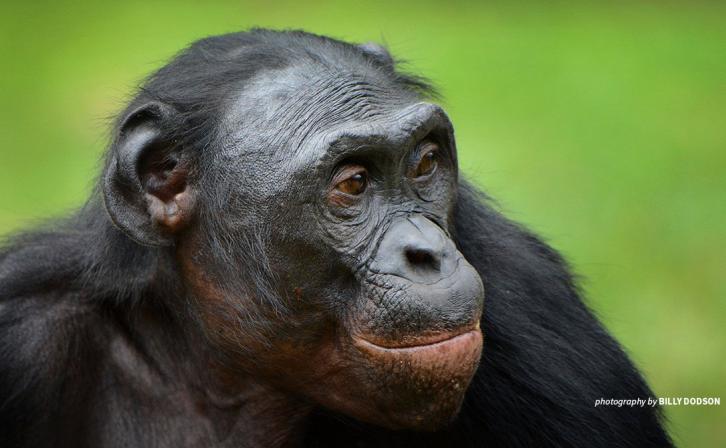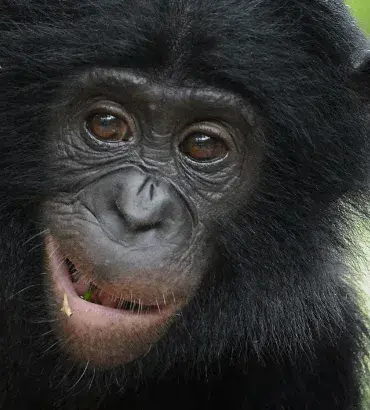Maringa-Lopori-Wamba
The Maringa-Lopori-Wamba (MLW) landscape covers approximately 72,000 square kilometers and is home to many endangered species, including the bonobo, found only in the DRC. To help promote long-term resilience and food security, we are intensively engaged with local communities in land-use planning, conservation projects, and sustainable livelihood strategies.
We have helped communities establish two bonobo reserves in this high-priority landscape. The 3,625-square-kilometer Lomako–Yokokala Faunal Reserve and the 1,030-square-kilometer Iyondji Community Bonobo Reserve comprise a bonobo habitat of global significance.
Conservation and development solutions assist local and Indigenous people, as well as indigenous wildlife. They include:
- Community livelihood projects, including training in entrepreneurship and microenterprise
- Support for participatory land-use planning
- Anti-poaching and law-enforcement support in partnership with the Institut Congolais pour la Conservation de la Nature (The DRC’s wildlife authority)
- Biological monitoring of wildlife populations and habitat
- Regular community sensitization to conservation goals and importance through meetings and public awareness campaigns
AWF in Action
Informing Choices
Our expertise helps local leaders, business owners, and community members make win-win decisions for their community and for wildlife. We organize inclusive local groups with representation from communities, government, NGOs, the private sector, and other local stakeholders to envision a sustainable, prosperous future—then, we develop land-use plans and strategies to get there. These consensus-driven plans consider local livelihoods, habitat, and areas important for ecosystem services like clean water, and the plans are informed by AWF-led resource mapping and spatial analyses. In this way, rights holders are empowered to make decisions about their future and find ways to achieve their aspirations while protecting and restoring nature. We also engage with businesses and advise them on sustainable agriculture and production techniques, as well as profit-increasing strategies.
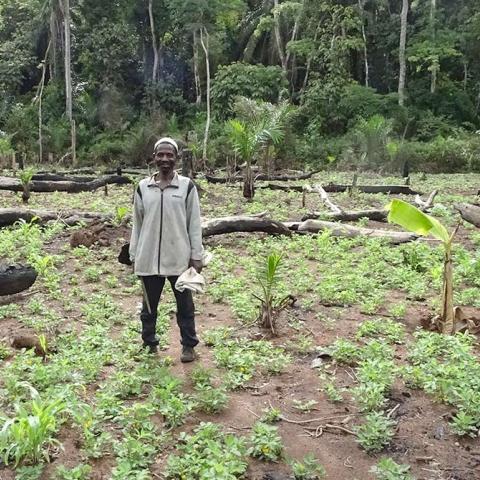
Integrating Human Rights into Conservation Work
Our work with communities shows how we fulfill our commitment to uphold a rights-based conservation approach. Rights-based training is integrated into eco-guard training as well as community outreach. We also helped establish grievance committees in the Lomako-Yokokala and Iyondji Community reserves to facilitate the swift resolution of any disputes that arise between the local populace and eco-guards.
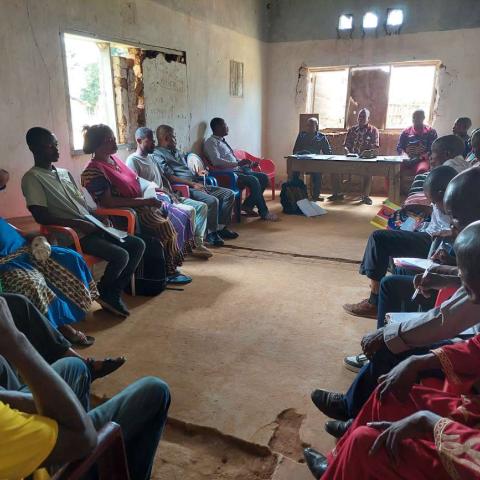
Linking Conservation with Education
Ilima, a remote village in northern DRC, is in a wildlife corridor between two nature reserves. In 2013, with the support of the Nancy and Charles Wall Family Foundation Fund, AWF constructed a primary school for the village in exchange for conservation commitments from the community. Since opening in 2015, Madina Conservation School has educated 1,400 children in grades 1-6. Students learn why it is important to protect their environment, and they bring this knowledge home, contributing to a community-wide understanding of conservation. Explore how Madina students in the 2023-2024 school year see nature.
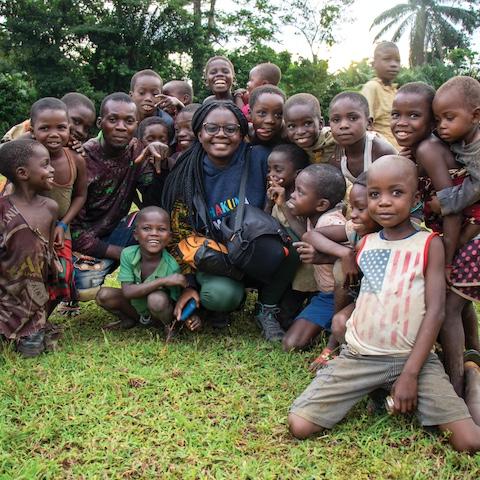
Rangers Safeguard Bonobos
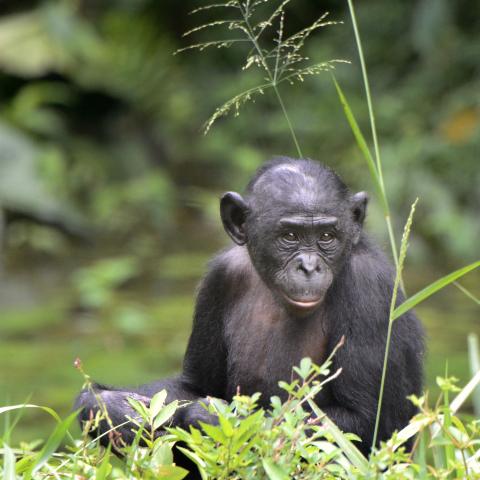
Supporting Life-Changing Entrepreneurship
Along with our partner, Village Enterprise, we are helping people from communities near the Lomako-Yokokala Faunal Reserve learn how to start and run successful micro-businesses. These alternative, sustainable businesses can help improve living conditions for families while reducing human impact on biodiversity. To date, the project has awarded micro-grants in support of 90 new businesses, benefiting a total of 1,890 people in 270 homes. The livelihoods program appears to be helping safeguard wildlife, too: The majority of area hunters have turned in their firearms to the ICCN, and none of the 12 poachers caught in the last two years in the Reserve were from the project area.
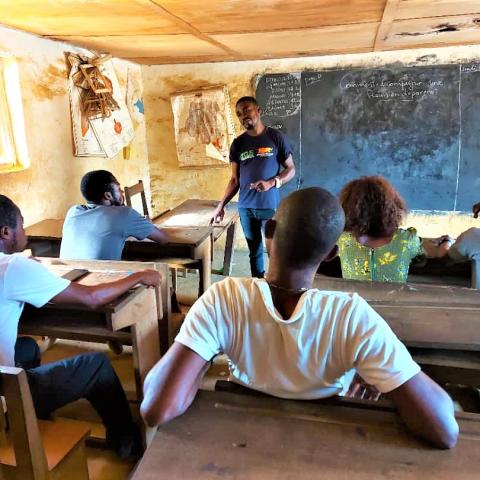
We work with the people of Democratic Republic of Congo for wildlife. Our strategic, implementing and funding partners include:
See More of Our Work
Wildlife We Are Protecting
By the Numbers
92% Portion of the landscape currently being covered by AWF-supported ranger patrols
